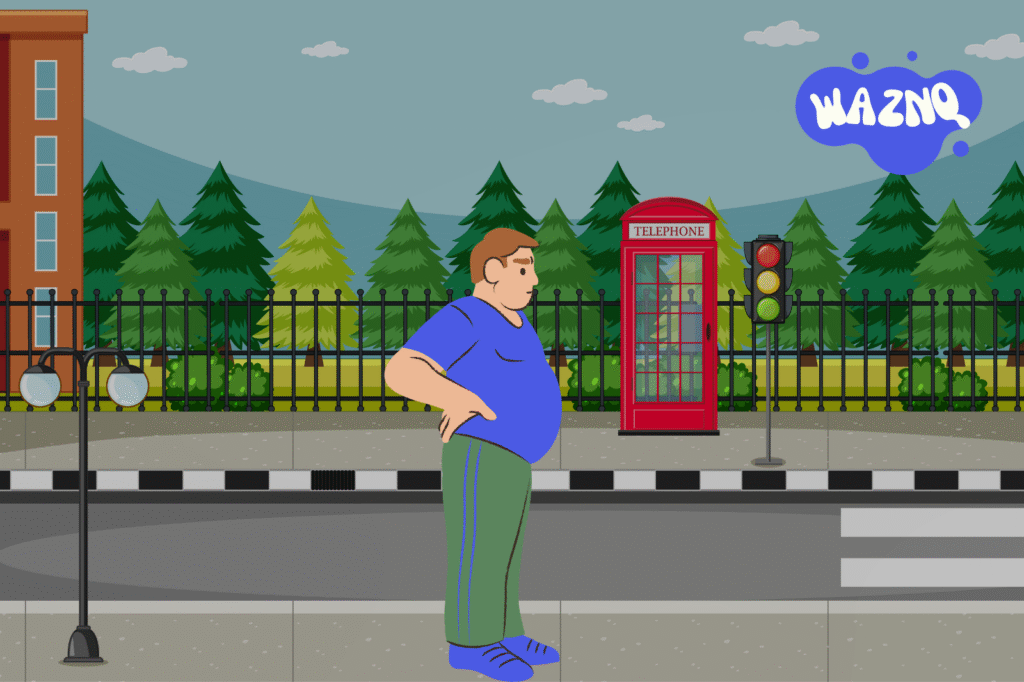It is no secret that the accumulation of fat in the abdominal area is not only limited to affecting outward appearance but also poses a health risk that may develop over time.
Many who have tried diets or exercise routines to get rid of belly fat have realized that it is not an easy process and that it requires commitment, patience, and perhaps major lifestyle sacrifices.
But before talking about ways to address it, it is first important to understand the reasons that cause fat to accumulate in this sensitive area of the body and the factors that increase the likelihood of exposure to it.
Trans Fats.. A Silent Enemy
Consuming fats is necessary for the body, but not all fats are equal in nutritional value. Trans fats are considered among the most dangerous types, as they increase the chances of gaining weight, particularly in the abdominal area, and they also raise the risk of heart disease, diabetes, and certain types of cancer. They are often found in packaged products and ready-made baked goods. Therefore, experts recommend reducing their consumption as much as possible and replacing them with fiber-rich foods such as whole grains and fresh vegetables.

Alcohol and Empty Calories
Alcoholic beverages are described as “empty calories,” as they do not provide the body with any useful nutrients, yet they increase the accumulation of visceral fat, Excessive alcohol consumption is directly linked to an increase in waist circumference and a higher body mass index.
The solution here is simple: replace alcohol with water, which helps hydrate the body and provides a sense of fullness without adding extra calories.
A Life Without Movement.. A Fast Track to Obesity
Lack of physical activity is one of the most prominent factors that hinder the elimination of belly fat. Sitting for long periods reduces calorie burning and encourages the body to store fat.
Introducing simple activities such as brisk walking or some daily home exercises can significantly improve fitness and reduce fat accumulation.
Sugar and Refined Carbohydrates
Excessive consumption of foods and drinks high in sugar is one of the fastest ways to pile up fat in the body.
Refined carbohydrates are not easily burned and are quickly stored as fat, The ideal solution lies in replacing them with healthy carbohydrates such as oats, relying on whole foods, and drinking plenty of water to reduce sugar cravings.

Stress and Lack of Sleep
The relationship between stress and weight gain is scientifically proven, as high cortisol levels slow down metabolism and increase appetite for high-calorie foods.
Lack of sleep worsens the issue, leading to an imbalance in the hormones that regulate hunger and satiety.
Therefore, getting 7 to 8 hours of sleep daily and managing stress in healthy ways such as meditation or exercise is an essential step to avoid belly fat.
Lack of Fiber in the Diet
Dietary fiber helps you feel full for longer periods and reduces the desire for unhealthy snacks, A diet low in fiber, on the other hand, leads to overeating and digestive issues.
Including fiber-rich foods such as legumes, fruits, and leafy vegetables in daily meals contributes to reducing visceral fat and improving digestive health.
Genetics.. The Factor That Cannot Be Ignored
The influence of genetics on body shape and fat distribution cannot be overlooked, Some studies have indicated that certain genes may affect the function of leptin, the hormone responsible for controlling appetite and weight management.
Although genetics may play a role in determining where fat is stored, a healthy lifestyle can still reduce potential negative effects.
Belly fat is not just a matter of appearance; it is an important indicator of internal body health, The causes are varied, starting with an unhealthy diet and lack of movement, all the way to stress and genetic factors,However, change is possible by following realistic steps that include improving diet, exercising regularly, getting enough sleep, and handling stress more calmly, Balancing these elements is the true path to getting rid of belly fat and maintaining better overall health.


Pingback: What is Forbidden and Allowed During Intermittent Fasting? - Waznq – Real Weight Loss Journey, Healthy Eating & Intermittent Fasting